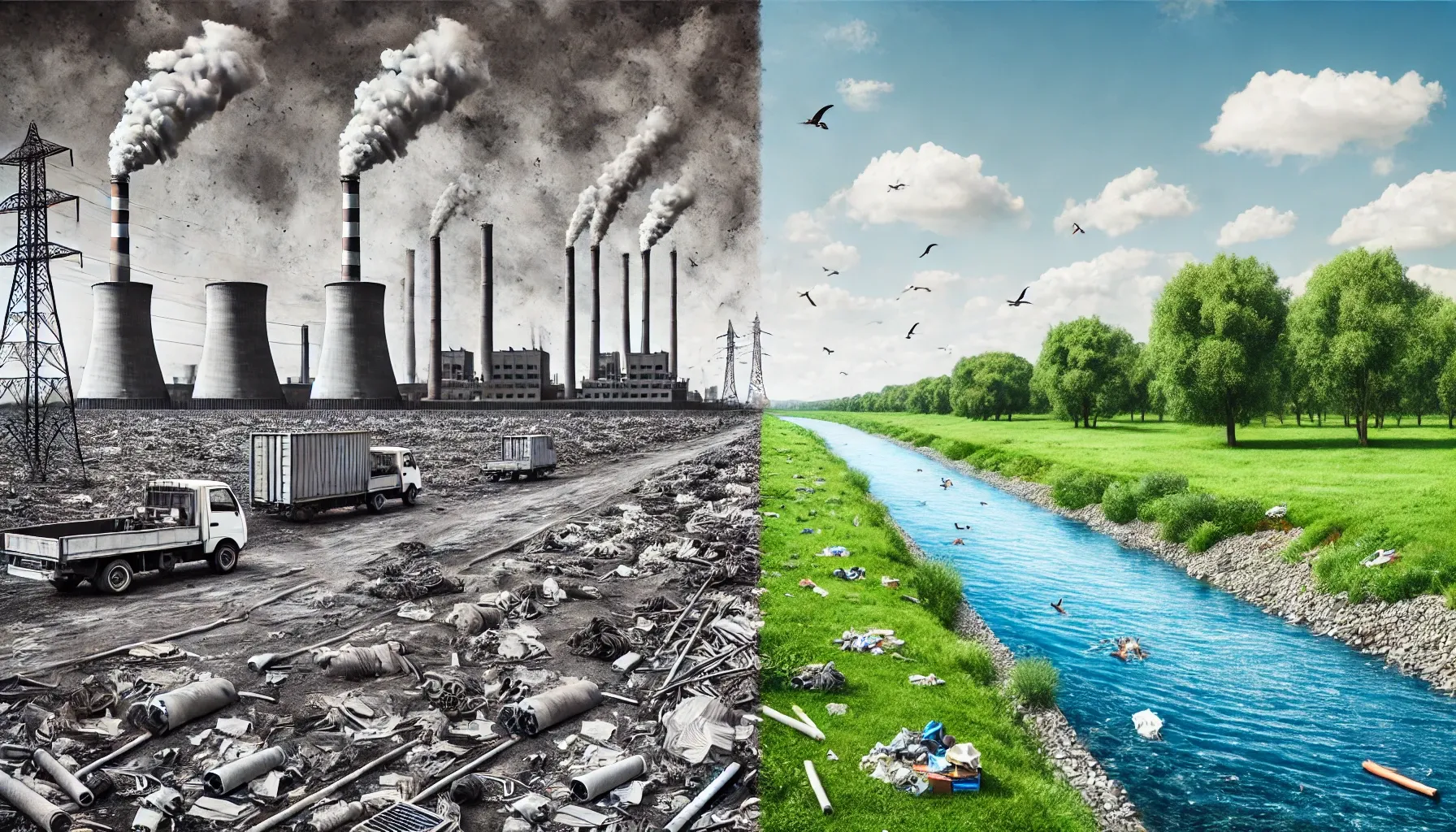Why Does It Have To Be So Complicated?

Look, we all know climate change is a hot topic (pun intended), but here's the thing: it doesn't have to be so damn complicated. Every time we turn around, we're bombarded with conflicting opinions—one side screaming that the world's about to overheat, and the other side telling us it's all just natural cycles. Both claim to have all the research, the experts, and the big names backing them. So, who's right?
To be honest, I think no one really knows for sure. Or maybe everyone does. Depends on which news outlet or politician you ask, right?
Here's my problem—this whole thing has become an industry in itself. A bureaucratic monster where people's jobs depend on the debate continuing. New green initiatives pop up left and right, each more convoluted than the last. At the same time, politicians jump from one half-baked policy to another. And what's the result? Tax the hell out of this, ban that, slap on some solar panels (even where the sun barely shines), and tell people to feel good about it. Oh, and by the way, let's also make sure you fill out a ton of forms for every little thing—so your house is so "green" that you can't even breathe without an air filter. Makes sense, right?
But here's the part that bugs me: why do we need all these complicated policies to deal with something as simple as keeping the environment clean? We've known for ages that pollution is harmful—whether we're talking about chemicals in the water, plastic in the oceans, or smog in the air. It shouldn't take a million regulations, bureaucrats, and climate conferences to get the basic point across: don't trash the place where you live. Companies, governments, and individuals—we all know better. There's no need for some high-level global debate on this. We should be able to agree on one thing: keep the environment clean, avoid toxic waste, and reduce air pollution. We don't need to drag this into complicated politics or create an entire industry around it.
And don't even get me started on the financial side of things. At the end of the day, no matter where you stand on the issue, if something's not profitable, it's not going to happen. We all know that. Industries like oil and gas aren't just going to vanish because someone's decided they're the bad guy. People have jobs, they need energy, and governments need tax money. You can't just pull the plug on that without a suitable replacement plan. And guess what? No one seems to have one.
Take the green movements or figures like Greta Thunberg. Now, no disrespect to Greta—credit to her for speaking up—but the people using her as a poster child for their cause are pushing extreme solutions without any real answers. Sure, let's stop all flights, ban oil, and tax everything that moves. But what happens if we actually do that tomorrow? Society would collapse. The sad thing is that some of these extreme measures have actually slowed real progress. The division they've caused has made it harder to get practical, reasonable solutions off the ground. It's no wonder those voices have gotten quieter lately, especially with economic crises, wars, and energy shortages, making it clear that those grand ideas just don't work in the real world.
Now, let's talk about something that's been bugging me for a while—carbon credits and emissions trading. So, we've got this system where countries or companies can buy the right to keep polluting, and we're supposed to believe that this solves the problem? I'm sorry, but that sounds like a bad joke. Pollute all you want, as long as you pay for it—what the hell is that about? Until the average person like you and I can understand and believe these systems work, it's just bureaucratic BS. And, honestly, do any of us feel like the environment has improved because of these "solutions"?
The truth is, we've reached a point where people are tired of being fed half-baked solutions and double standards. We get lectured about stopping pollution while some countries keep burning coal, and we pretend that some fancy credit system is fixing everything. Meanwhile, smaller countries still use oil and gas but buy up climate quotas like they're miracle cures. Let's stop fooling ourselves—this isn't working.
So, what do we do? We can't change society overnight, but we can start with some common sense. Let's be honest—we still need those so-called "polluting" industries, and we will for the next 30, 50 years, maybe longer. We don't have the technology to replace them yet, at least not in a way that makes sense financially. And let's be honest—no one will give up their job or lifestyle just because someone in a suit says they should. Not without a clear alternative in place. No one wants to sit in the dark or freeze just to feel good about "going green."
But here's where things could actually get interesting: technology. Instead of demonizing industries like oil, gas, or manufacturing, why not push them to innovate? Instead of shutting them down, give them the motivation—and resources—to figure out how to operate more cleanly and efficiently. You know what I think? These industries probably hold the key to solving a lot of the problems we're facing. We just need to give them a reason to dig deep and develop solutions. Let's get rid of the mentality that these industries are the enemy—they're not. They're part of the solution if we let them be.
I know, I know—this is a vast topic, and I don't claim to have all the answers. But can we at least agree on this? The bureaucratic mess we're stuck in right now isn't getting us anywhere. The endless debates, the conferences, the flashy green initiatives that lead to nowhere—it's time to get real. We have one planet, and until Elon Musk gets us to Mars, we better start figuring this out in a way that actually makes sense.

